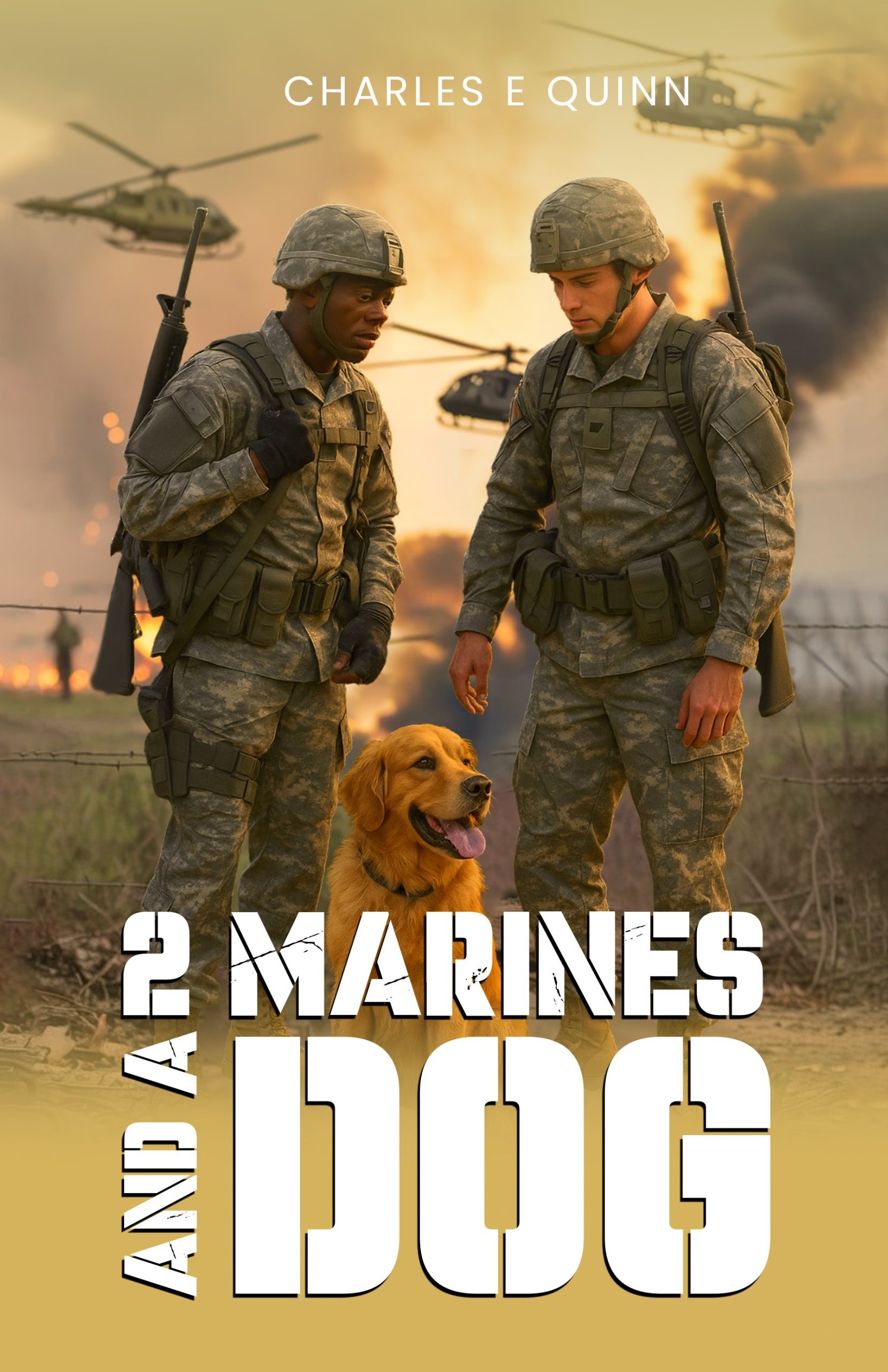War is often remembered in dates and strategies, but for the men on the ground, it is lived in seconds of chaos, fear, and determination. Few moments in the Vietnam War left as deep a scar as the Tet Offensive of 1968, a massive, coordinated assault that stunned U.S. forces and reshaped public perception of the war. For soldiers like Spencer in Charles Quinn’s 2 Marines and Dog, the Tet Offensive was not a headline but a haunting experience lived through sweat, gunpowder, and the weight of survival.
Quinn’s novel provides a gripping recount of this pivotal chapter, not through the lens of history books but through the eyes of a Marine whose life would be forever changed. Spencer’s narrative makes clear that battles are not simply fought with weapons. They are endured through resilience, camaraderie, and the determination to keep moving when exhaustion threatens to crush the body and spirit. The Tet Offensive, as told in the novel, becomes a crucible of loyalty and survival.

The book captures the chaos of jungle combat, where enemies appeared like shadows and every sound could mean death. The air is thick with smoke, fear, and the cries of both comrades and opponents. Quinn paints these scenes with raw honesty, placing readers inside the terrifying unpredictability of the battlefield. It is not a glorified depiction of war but an unflinching look at its cost, showing how each firefight leaves echoes that follow soldiers long after the shooting stops.
However, amid the destruction, 2 Marines and Dog highlight something enduring: the brotherhood of the Marines. In the Tet Offensive chapters, Spencer leans on the strength of fellow soldiers and the unspoken bond that keeps men alive when the odds are stacked against them. This camaraderie becomes the antidote to fear, a reminder that resilience is not an individual act but a collective one. It’s a lesson that carries through the rest of Spencer’s life, shaping the way he processes trauma and finds healing years after the war ends.
Quinn also ties the emotional weight of these battles to their lifelong echoes. The Tet Offensive does not end when the gunfire fades. For Spencer, and for many veterans, the memories return in flashbacks, survivor’s guilt, and the silence of nights haunted by what was lost. By weaving these psychological aftershocks into the story, Quinn ensures the reader understands that the true cost of Tet, and of war itself, cannot be measured only in military outcomes.
Through Spencer’s eyes, we see the Tet Offensive not just as a battle but as a turning point in a Marine’s life. It is a story of endurance in the moment and survival in its aftermath, a reminder of the strength it takes to live with memories of war.
For anyone seeking to understand Vietnam from a deeply personal angle, 2 Marines and Dog is essential reading. It offers not just a gripping recount of the Tet Offensive, but also a powerful reflection on the lifelong echoes of war.
Grab your copies from Amazon: https://www.amazon.com/dp/B0FLVQT1S3.
